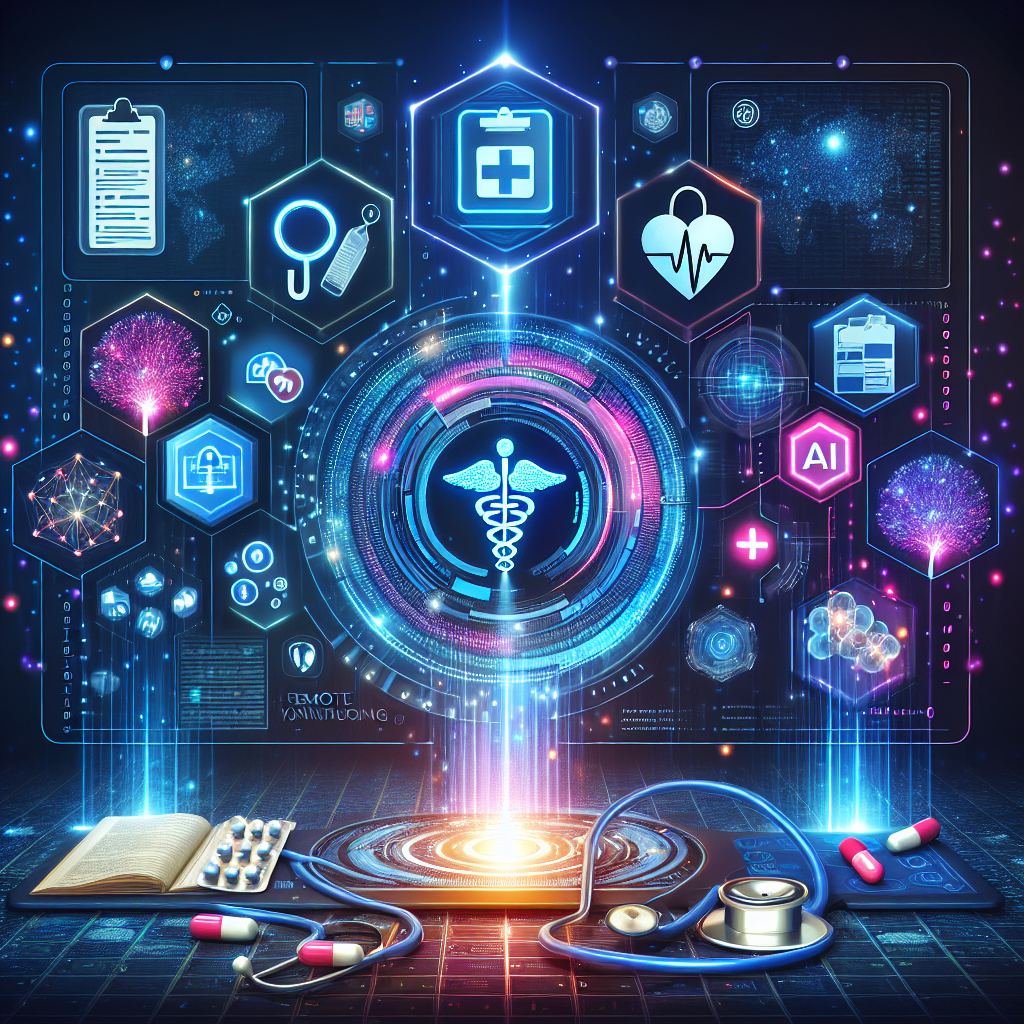With the advancement of technology, the healthcare industry has seen a significant transformation in recent years. One of the most notable changes is the integration of artificial intelligence (AI) into remote monitoring and telehealth services. AI has the potential to revolutionize the way healthcare is delivered by improving patient outcomes, reducing costs, and increasing access to care.
What is AI Integration in Healthcare?
AI integration in healthcare refers to the use of artificial intelligence technologies to enhance the delivery of healthcare services. This can include the use of machine learning algorithms to analyze medical data, natural language processing to improve communication between patients and healthcare providers, and robotics to assist in surgeries and other medical procedures.
In the context of remote monitoring and telehealth services, AI integration can help healthcare providers to remotely monitor patients’ health status, detect potential issues early, and provide timely interventions. This can be especially beneficial for patients with chronic conditions who require continuous monitoring and care.
How AI Enhances Remote Monitoring and Telehealth Services?
AI offers several benefits when integrated into remote monitoring and telehealth services, including:
1. Improved Monitoring and Diagnosis: AI algorithms can analyze large amounts of health data, such as vital signs, lab results, and medical imaging, to identify patterns and trends that may indicate a potential health issue. This can help healthcare providers to make more accurate diagnoses and provide timely interventions.
2. Personalized Treatment Plans: AI can analyze a patient’s medical history, genetic information, and other relevant data to create personalized treatment plans tailored to their unique needs. This can lead to better outcomes and reduce the risk of adverse events.
3. Remote Patient Monitoring: AI-powered devices can monitor patients’ health status in real-time and alert healthcare providers if any abnormalities are detected. This can help to prevent complications and reduce the need for hospital readmissions.
4. Virtual Consultations: AI chatbots and virtual assistants can help patients to schedule appointments, access medical information, and communicate with healthcare providers remotely. This can improve patient satisfaction and reduce the burden on healthcare staff.
5. Predictive Analytics: AI algorithms can predict the likelihood of future health events, such as hospitalizations or complications, based on a patient’s health data. This can help healthcare providers to proactively intervene and prevent adverse outcomes.
Challenges of AI Integration in Healthcare
While AI integration in healthcare offers many benefits, there are also challenges that need to be addressed, including:
1. Data Privacy and Security: AI systems require access to a large amount of sensitive health data, which raises concerns about patient privacy and data security. Healthcare providers must ensure that appropriate safeguards are in place to protect patient information.
2. Regulatory Compliance: Healthcare regulations are complex and vary by region, which can make it challenging to implement AI technologies in a compliant manner. Healthcare providers must navigate these regulations to ensure that their AI systems meet legal requirements.
3. Integration with Existing Systems: Healthcare organizations often have legacy systems that are not designed to work with AI technologies. Integrating AI into these systems can be complex and require significant resources.
4. Training and Education: Healthcare providers and staff may not be familiar with AI technologies and require training to effectively use and interpret the information provided by AI systems.
FAQs
Q: How can AI improve remote monitoring and telehealth services?
A: AI can improve remote monitoring and telehealth services by analyzing large amounts of health data to detect potential issues early, creating personalized treatment plans, and enabling virtual consultations with healthcare providers.
Q: What are the benefits of AI integration in healthcare?
A: The benefits of AI integration in healthcare include improved monitoring and diagnosis, personalized treatment plans, remote patient monitoring, virtual consultations, and predictive analytics.
Q: What are the challenges of AI integration in healthcare?
A: The challenges of AI integration in healthcare include data privacy and security concerns, regulatory compliance issues, integration with existing systems, and the need for training and education for healthcare providers and staff.
Q: How can healthcare organizations overcome the challenges of AI integration?
A: Healthcare organizations can overcome the challenges of AI integration by implementing robust data privacy and security measures, ensuring regulatory compliance, investing in system integration, and providing training and education for healthcare providers and staff.

